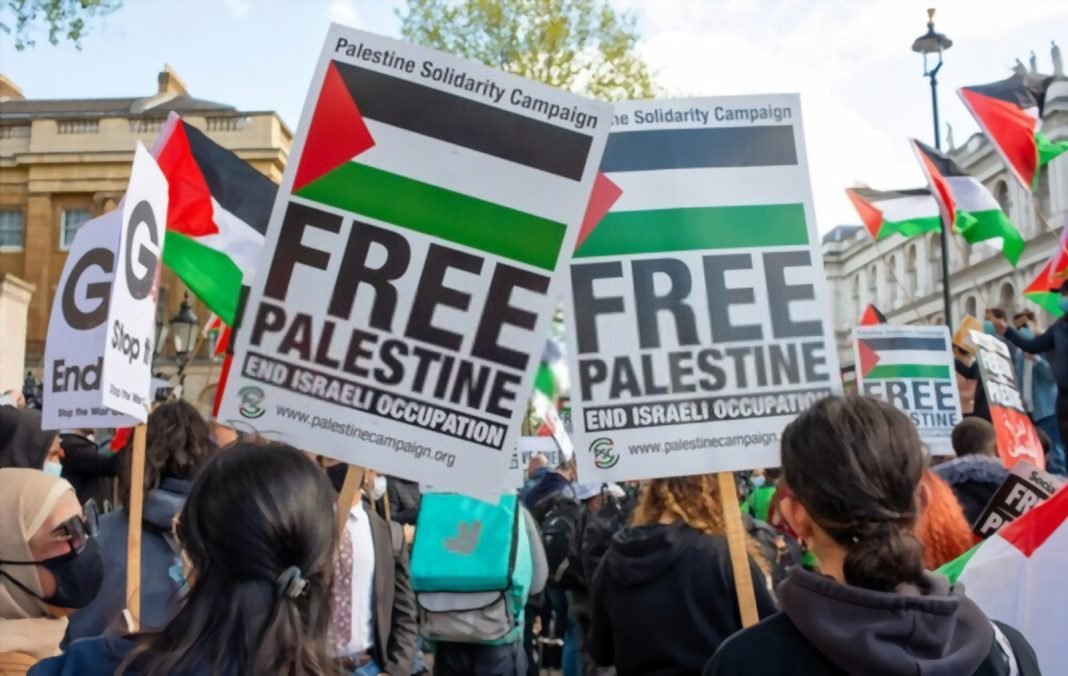How has the EU reacted to Palestinian and Israeli pressures?
What does the EU want from the Israeli-Palestinian conflict?
What is the reason for the negligence of EU officials on human rights violations by the Israelis?
How does the EU justify its passive policy towards the recent tensions between Israel and the EU?
The EU and European countries have always taken a passive approach, even refraining from condemning the crimes of the occupying regime in Jerusalem, as Zionist attacks on the oppressed people of Palestine have intensified, leaving thousands dead and hundreds wounded.
How the EU reacts to Palestinian and Israeli conflicts
The reaction of the Europeans can be examined from two perspectives. First, in response to the Zionist regime’s crimes, they uttered subtle words such as the need to reduce tensions, adherence to international human rights standards, and diplomacy. But in retaliation, resistance groups and Palestinians whom the occupiers of Jerusalem have oppressed for more than seven decades have called it a blatant crime against Israel and strongly condemned it. On this basis, the Europeans give the fake and occupier regime of Jerusalem the right to defend itself against the response of the resistance groups.
EU officials support Israel
EU officials often dismiss rockets fired at Israeli civilian targets as unacceptable, citing Israeli military actions and crimes against the oppressed Palestinian people. They have taken a passive approach, aiming to achieve a political vision and move towards The solution side is to form a two-state. The EU is working to end the unrest immediately by negotiating with its international partners. In an entirely one-sided stance, they say that rocket fire against the occupied territories is wholly unacceptable and should be stopped immediately. “Israel” has the right to defend itself, and the continuation of this situation is unacceptable and intolerable.
Demonstrations in the EU in support of the Palestinians
Protests against the crimes of the Zionist regime have been held many times in several European and American cities. Hundreds of Muslims, civil society activists, human rights activists and anti-war groups gathered in various EU cities, chanting “Death to Israel” in support of the Palestinian Intifada, calling for an end to Zionist atrocities in occupied Palestine immediate response. Have become a global community. They called the Zionist regime’s attacks in Palestine barbaric and called on the UN and other international bodies to pressure the power. The protesters also called on European governments to end their support for Israel’s racist and criminal regime and enforce international resolutions.
EU policy on the Israeli-Palestinian conflict
The EU has always been an essential player in the Zionist-Palestinian conflict. The most important policies of the EU to deal with the Zionist-Palestinian conflict are 1- Efforts to manage and resolve the dispute as a precondition for advancing the democratization process in the region and countering terrorism and extremist Islamism; 2- Attempting to create two independent states – the nation of Israel and Palestine as a precondition for ensuring the security and existence of the Zionist regime; 3- Trying to balance the relations with the Zionist regime and the Arabs.
The EU has demanded the formation of two Israeli and Palestinian states
Commitment to creating two independent nation-states of the Zionist regime and Palestine, which is considered the most critical threat to both the Israeli government and the region, is another central policy of the EU. To achieve this strategy, the EU has pursued a policy of putting pressure on both sides of the conflict. The policy of labelling goods produced in Jewish settlements in the West Bank and East Jerusalem in EU member states is one of the pressures to realize the idea of the two states. The EU believes that if the settlement continues in the Palestinian territories, which will lead to the creation of buffer zones between these areas and the region of the Zionist regime, the realization of this idea will be practically ruled out.
The EU seeks to secure Israel.
Trying to balance relations with the Zionist regime and the Arabs has also been another policy of the EU regarding the Zionist-Palestinian conflict. Europe’s confrontation with catastrophic experiences such as the Holocaust has been one of the main factors in placing the issue of Zionist security at the heart of EU policies in the Middle East.
The growth of anti-Israel tendencies in Europe
The results of many published polls confirm the growing trend of anti-Israel tendencies in Europe in recent years. The rise of radical left-wing parties and groups in several European countries’ political and social spheres that oppose the Zionist regime’s policies toward the Palestinians can also be assessed in this light. The simultaneous adoption and implementation of the two priority policies of Israel’s security and procedures based on the importance of human rights should be considered the main obstacle to the EU becoming an effective mediator in managing the Israeli-Palestinian conflict.
conclusion
The priority policy of maintaining Israel’s security has been the main reason for adopting and implementing some dual procedures by the EU. Among them: 1. The EU’s tolerant approach to Zionist weapons of mass destruction. 2. EU doesn’t support Palestine’s membership in the International Court of Justice in The Hague due to the possibility of prosecuting Israeli war crimes 3- not forming a human rights committee about Israel despite the establishment of this committee about other Mediterranean countries. In practice, a policy has reduced the level of legitimacy of the EU in managing the Zionist-Palestinian conflict.
Thus, it can be concluded that the European positions on the Palestinian-Israeli conflict are very close. Their functions are focused on condemning the resistance forces, expressing sympathy with the Zionist regime and emphasizing the need to reduce tensions. It is as if the Zionist regime committed no crime against the Palestinians, and if any action is taken, it can be interpreted in the context of the right to self-defence.

